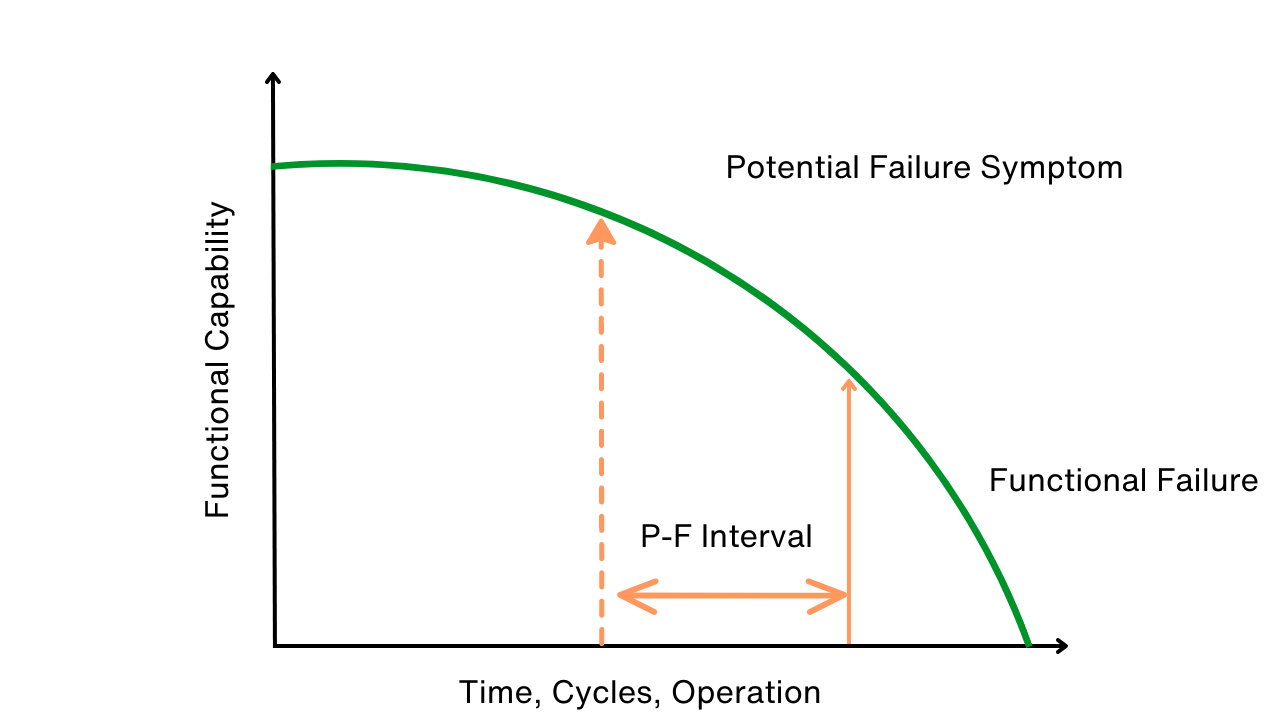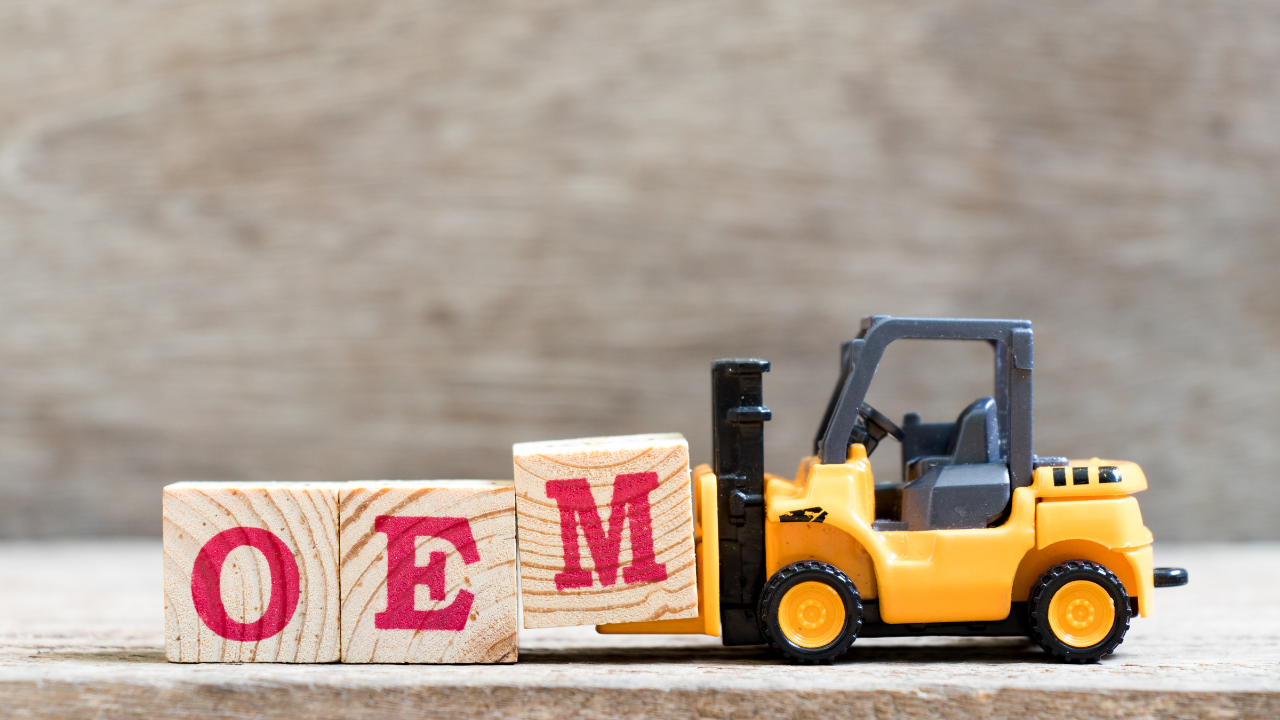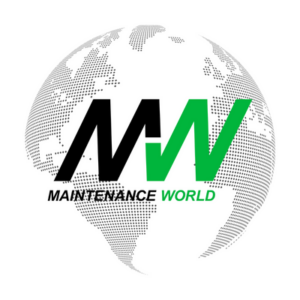Corrosion Prevention a New Market Niche?
Jim Deardorff, President of Superior Coatings
Corrosion-Prevention-A-New-Market-Niche
Click here to download the full pdf.
James R. Deardorff is a NACE and SSPC member and the president of Superior Coatings, a contract painting company located in Chillicothe, Mo. With almost 20 years of experience in its field, Superior Coatings specializes in the application and maintenance of protective coatings for equipment, structural steel, and concrete. Deardorff is a distributor for protective coatings and NDT inspection equipment. He has also written more than 50 articles and papers on coatings, abrasive blast cleaning, and surface maintenance programs.
Related Articles

Use P-F Intervals to Map, Avert Failures
The potential-to-functional failure interval (P-F interval) is one of the most important concepts when it comes to performing Reliability-Centered Maintenance (RCM). Remarkably, the P-F interval is also one of the most misunderstood RCM concepts. The failure mode analysis becomes even more complicated when you are dealing with several P-F intervals for one failure mode. This paper will help clarify the P-F interval and the decision-making process when dealing with multiple P-F intervals.
The potential-to-functional failure interval (P-F interval) is one of the most important concepts when it comes to performing Reliability-Centered Maintenance (RCM). Remarkably, the P-F interval is also one of the most misunderstood RCM concepts. The failure mode analysis becomes even more complicated when you are dealing with several P-F intervals for one failure mode. This paper will help clarify the P-F interval and the decision-making process when dealing with multiple P-F intervals.

The RCM Trap
This column is likely to create a lot of reactions from the academia of reliability and maintenance management, and all comments are welcome. Reliability Centered Maintenance (RCM) has its place, but many times plants jump into training programs and attempt to implement RCM long before they are ready for it. This application makes RCM more of a trap, than a helpful tool to implement.
This column is likely to create a lot of reactions from the academia of reliability and maintenance management, and all comments are welcome. Reliability Centered Maintenance (RCM) has its place, but many times plants jump into training programs and attempt to implement RCM long before they are ready for it. This application makes RCM more of a trap, than a helpful tool to implement.

Can You Really Justify Reliability Centered Maintenance (RCM)?
Reliability Centered Maintenance is a step-by-step instructional tool for how to analyze a system's failure modes and define how to prevent or find those failures early. RCM become a very detailed study of things we already know, you will often hear the justification "it's to make sure we don't miss anything." If you are considering implementing a reliability centered maintenance program, you. should be aware of the problems you may run into.
Reliability Centered Maintenance is a step-by-step instructional tool for how to analyze a system's failure modes and define how to prevent or find those failures early. RCM become a very detailed study of things we already know, you will often hear the justification "it's to make sure we don't miss anything." If you are considering implementing a reliability centered maintenance program, you. should be aware of the problems you may run into.

Design for Maintainability
Maintainability can be defined as the ease in time and resources of retaining equipment in or restoring it to a specified operational condition. It directly affects the bottom line because it can impact operations, downtime, maintenance costs, and safety. Maintainability is an important aspect of any system's lifecycle, but process plant engineers typically give it little direct consideration. This is primarily the result of a short-term view of capital project costs that fails to consider lifecycle costs and downstream activities.
Maintainability can be defined as the ease in time and resources of retaining equipment in or restoring it to a specified operational condition. It directly affects the bottom line because it can impact operations, downtime, maintenance costs, and safety. Maintainability is an important aspect of any system's lifecycle, but process plant engineers typically give it little direct consideration. This is primarily the result of a short-term view of capital project costs that fails to consider lifecycle costs and downstream activities.

Communications: The OEM Partnership
When maintenance is allowed to interact with the plant and production Original Equipment Manufacturer (OEM), a prosperous relationship for both parties will often ensue. This OEM partnership results in first-hand information for maintenance to set up its maintenance approach, and valuable operational and design feedback for the OEM. There are seven main circumstances in which maintenance will interact or communicate with an OEM and form an OEM partnership.
When maintenance is allowed to interact with the plant and production Original Equipment Manufacturer (OEM), a prosperous relationship for both parties will often ensue. This OEM partnership results in first-hand information for maintenance to set up its maintenance approach, and valuable operational and design feedback for the OEM. There are seven main circumstances in which maintenance will interact or communicate with an OEM and form an OEM partnership.




